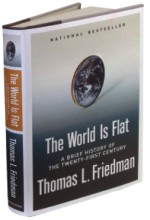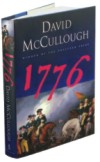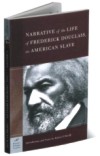|
Books
History and Beyond
 The World is Flat: A Brief History of 21st Century The World is Flat: A Brief History of 21st Century
Thomas L. Friedman
Farrar, Straus and Giroux; April 2005
Even a brilliant provocateur like foreign affairs expert Thomas L Friedman would not presume to write a history of the 21st century based on the first four years of the millennium. But in this important socioeconomic study, a follow-up to 1999's The Lexus and the Olive Tree, the three-time Pulitzer Prize winner argues persuasively that globalisation, with all its attendant geopolitical effects, is the single most significant trend of our day. To paraphrase the ancient Chinese curse, we are indeed living in interesting -- and historic -- times!
 1776 1776
David McCullough
Simon & Schuster Publishing Group; May 2005
The story of 1776, the year of our America's birth, has become so enmeshed in shadow play rituals that we no longer sense its immediacy or its significance. That changes with this full-bodied narrative history. With this book, two-time Pulitzer Prize winner David McCullough does for George Washington (and surprisingly enough, George III) what he did for John Adams, Harry Truman, and Theodore Roosevelt. He sets the grass-roots fervency of the outnumbered colonists against the mighty United Kingdom, the world's only superpower. Like all McCullough's books, 1776 captures history at its most human level. He takes the reader, for instance, on the arduous journey of Henry Knox, a Boston bookseller who dragged tons of heavy British artillery to turn the tide in the siege of Boston.
 Narrative of the Life of Frederick Douglass, an American Slave Narrative of the Life of Frederick Douglass, an American Slave
Frederick Douglass, Robert O'Meally (introduction)
Barnes & Noble Books; November 2003
Born a slave in 1818 on a plantation in Maryland, Douglass taught himself to read and write. In 1845, seven years after escaping to the North, he published Narrative, the first of three autobiographies. This book calmly but dramatically recounts the horrors and the accomplishments of his early years, casual brutality of the white masters; his painful efforts to educate himself; his decision to find freedom or die; and his harrowing but successful escape. An astonishing orator and a skillful writer, Douglass became a newspaper editor, a political activist, and an eloquent spokesperson for the civil rights of African Americans. He lived through the Civil War, the end of slavery, and the beginning of segregation. He was celebrated internationally as the leading black intellectual of his day, and his story still resonates in ours.
Compiled
by: Sanyat Sattar
Copyright
(R) thedailystar.net 2005 |
